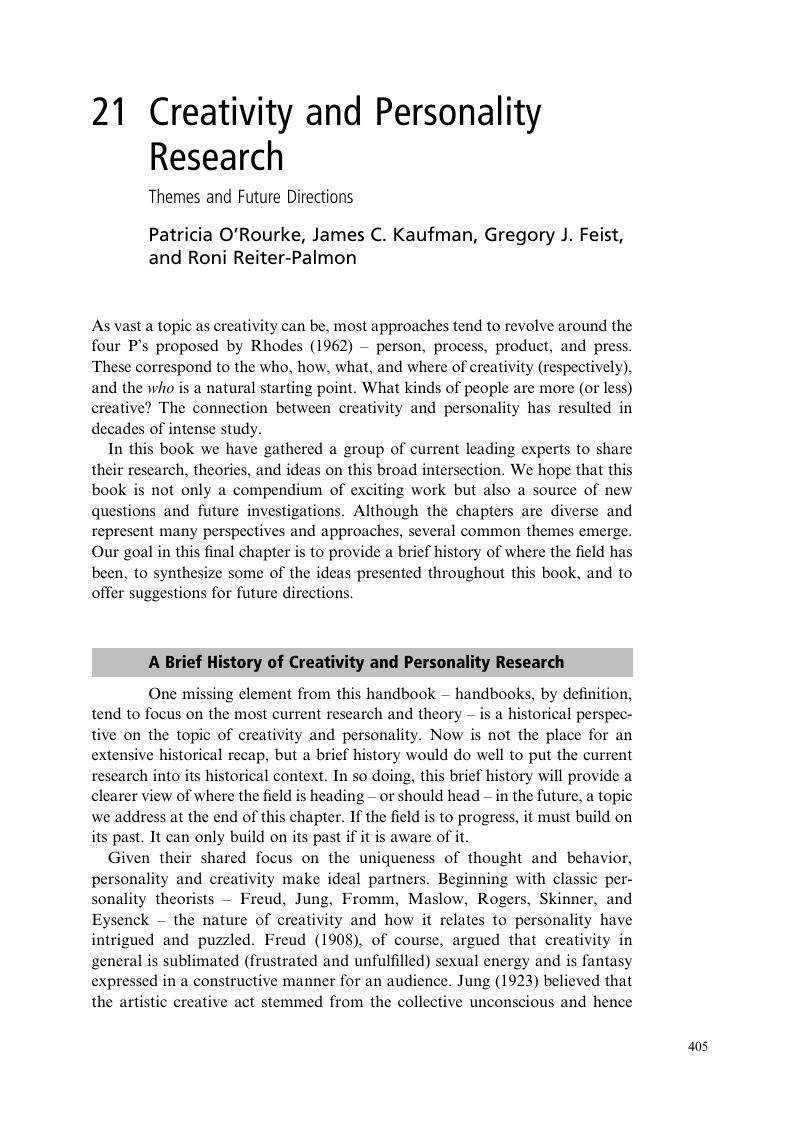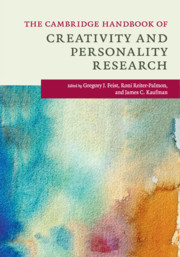Book contents
- The Cambridge Handbook of Creativity and Personality Research
- The Cambridge Handbook of Creativity and Personality Research
- Copyright page
- Dedication
- Contents
- Acknowledgments
- 1 Introduction: The Personal Side of Creativity
- Part I Process and Structure of the Creative Personality
- Part II Creativity and Personality
- Part III Creativity and Personality
- 15 Creativity and the Big Five Personality Traits
- 16 What Are Funny People Like?
- 17 Much More than Selfies
- 18 Can Teams Have a Creative Personality?
- 19 The Entrepreneurial Personality
- 20 Effects of Creativity Training Programs on Individual Characteristics
- 21 Creativity and Personality Research
- Index
- References
21 - Creativity and Personality Research
Themes and Future Directions
from Part III - Creativity and Personality
Published online by Cambridge University Press: 19 May 2017
- The Cambridge Handbook of Creativity and Personality Research
- The Cambridge Handbook of Creativity and Personality Research
- Copyright page
- Dedication
- Contents
- Acknowledgments
- 1 Introduction: The Personal Side of Creativity
- Part I Process and Structure of the Creative Personality
- Part II Creativity and Personality
- Part III Creativity and Personality
- 15 Creativity and the Big Five Personality Traits
- 16 What Are Funny People Like?
- 17 Much More than Selfies
- 18 Can Teams Have a Creative Personality?
- 19 The Entrepreneurial Personality
- 20 Effects of Creativity Training Programs on Individual Characteristics
- 21 Creativity and Personality Research
- Index
- References
Summary

- Type
- Chapter
- Information
- The Cambridge Handbook of Creativity and Personality Research , pp. 405 - 413Publisher: Cambridge University PressPrint publication year: 2017



